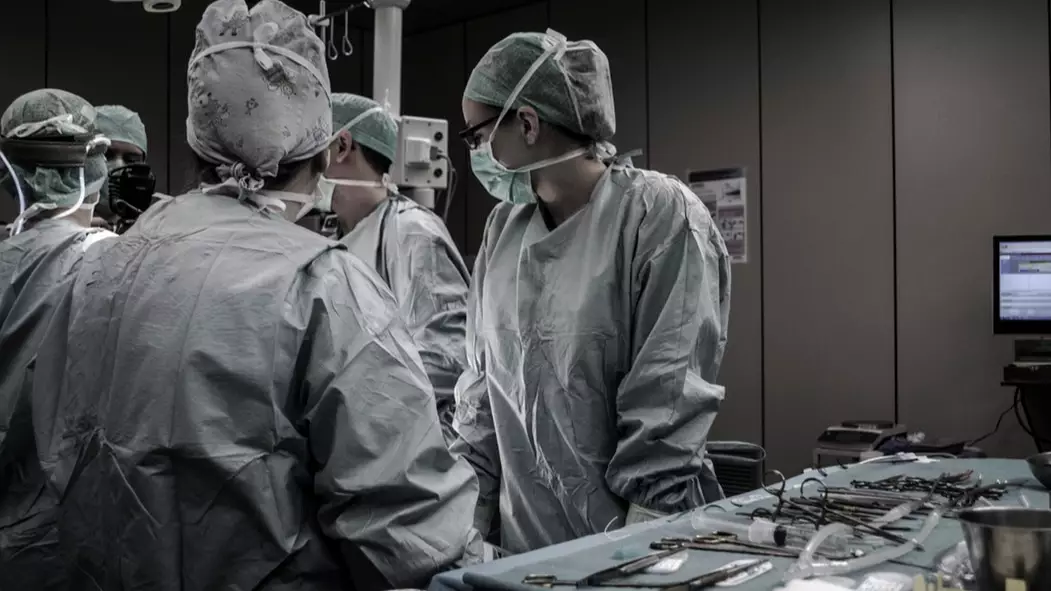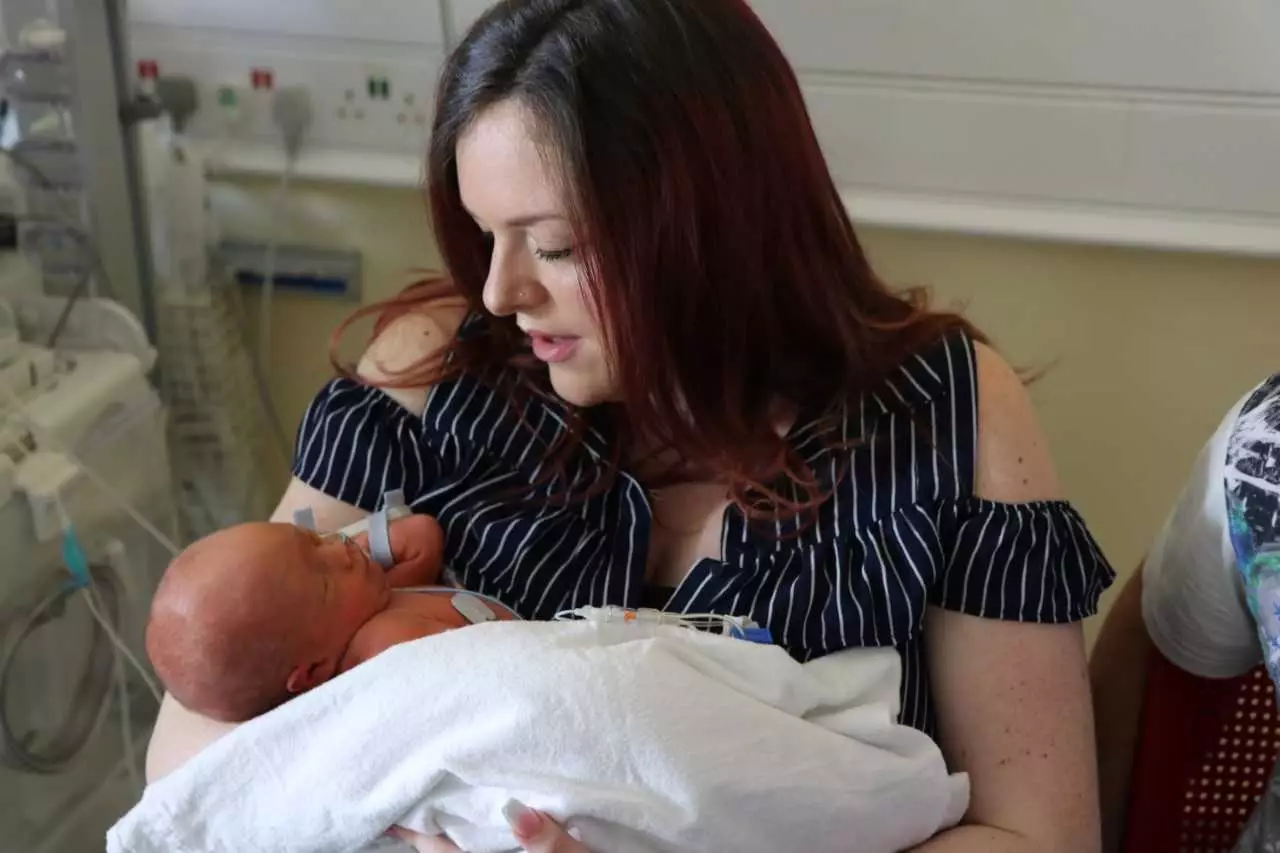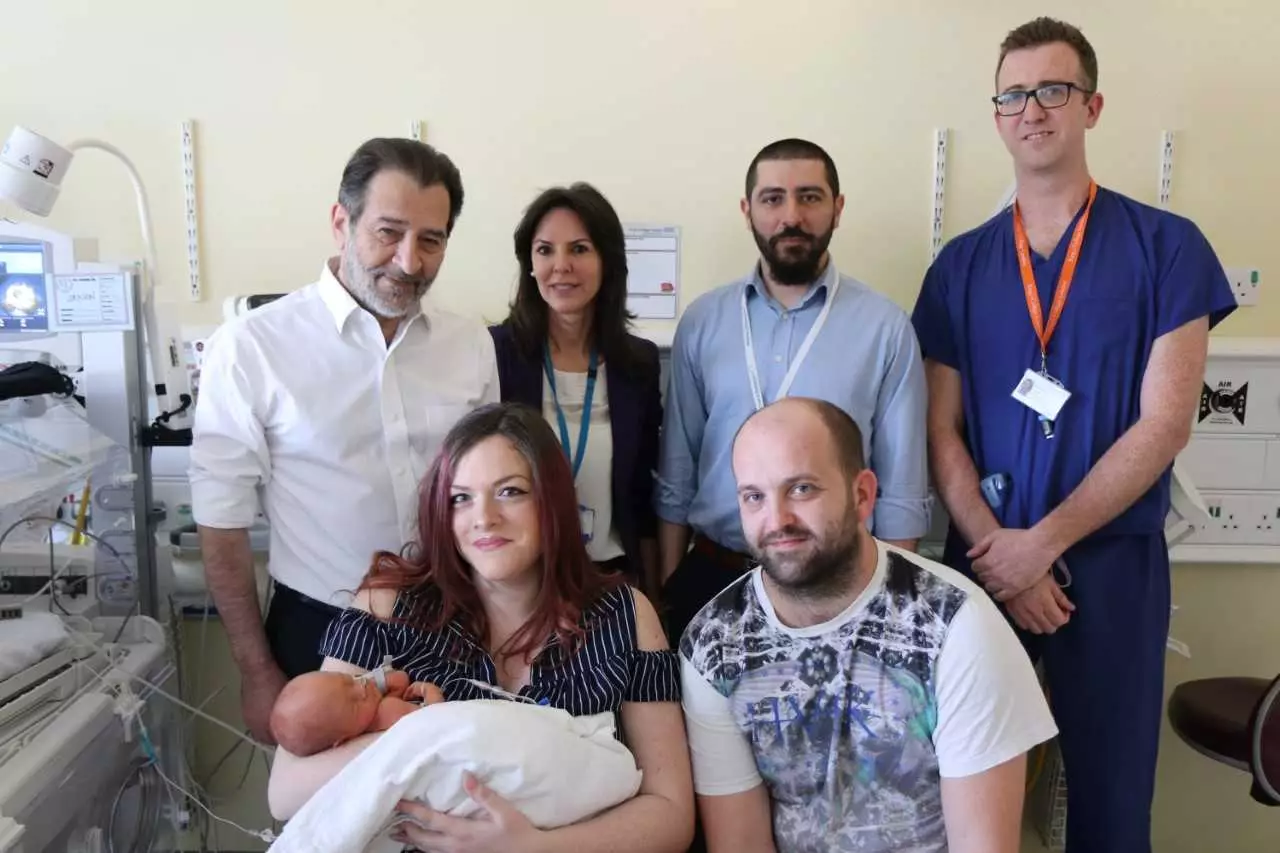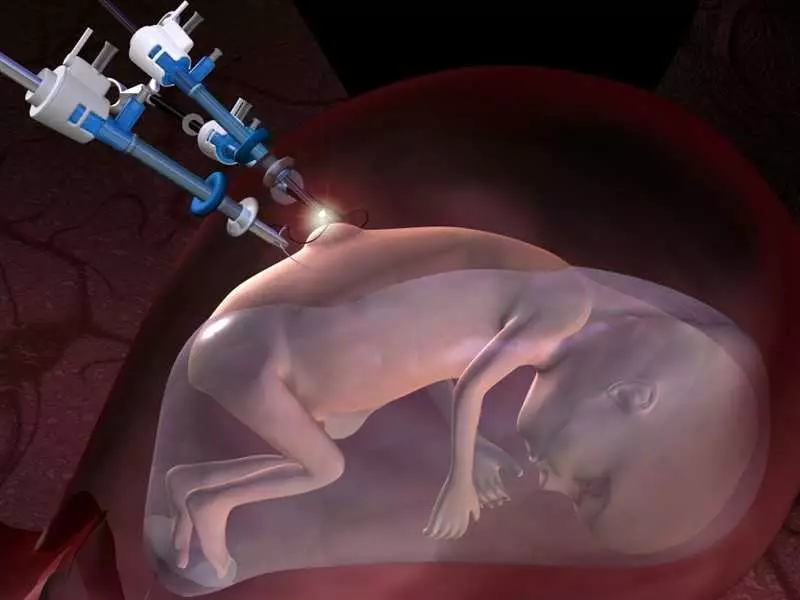
Doctors at King's College Hospital in London have become the first in the UK to successfully complete keyhole surgery on a baby with spina bifida while still in the womb.
The team of neurosurgeons and fetal medicine specialists were guided by ultrasound to repair the holes in baby Jaxson's spinal cord using a camera and instruments through tiny incisions in his mother's stomach.
Until recently, spina bifida has been fixed in babies through either invasive fetal surgery or an operation to repair the hole after birth.
Advert
Surgeons say that while it may not be a cure for the condition - which causes a gap in the spine - it may be the difference to whether a child can walk later in life.

Sherrie Sharp, 28, from Horsham in West Sussex discovered her baby's spine and spinal cord were not forming properly at her 20-week scan.
Advert
Her son Jaxson Nicholas Leonard James Sharp, who was born last month, was among the first to have the pioneering surgery at King's College Hospital.
Sherrie, who had life-saving treatment herself as an unborn baby at the same hospital, self-referred to the Fetal Medicine Department where she was offered the new surgery called fetoscopic repair.
She said: "When we found out Jaxson had spina bifida I was given a number of options. We knew we wanted to keep our baby and I'm here today thanks to the specialists King's so I wanted my baby to have the same chance.

"The procedure took over three hours and the specialists were happy with how it went. We're thrilled with our beautiful boy and even though he arrived earlier than expected he's doing well and his back is healing nicely."
Advert
During surgery, a small incision is made in the woman's abdomen, and a long, thin tube with a light and camera at the end is guided into the uterus.
The surgeons then access the exposed spinal cord through a hole in the baby's back to free it from surrounding tissue so it can be put back into the spinal canal.
A special patch is used to cover the spinal cord, and the muscles and skin are closed up to prevent spinal fluid leaking.

Bassel Zebian, Consultant Neurosurgeon at King's College Hospital, who led the neurosurgical part of the team carrying out the procedure, said: "A number of centres around the world have made great strides in open fetal repair over the last few years and demonstrated the benefit of fetal surgery in reducing the severity of the condition and associated complications.
Advert
"The aim of the fetoscopic approach is to reduce the risks to the mother and future pregnancies whilst still ensuring maximal benefit for the baby."

Dr Marta Santorum-Perez, Consultant in Fetal Medicine, who led the fetal medicine part of the team, added: "Only a handful of centres around the world have the required expertise to perform surgery using a fetoscope.
"We were fortunate enough to train and work closely with Dr Denise Lapa Pedreira, Consultant in Fetal Medicine at the Albert Einstein Hospital in Sao Paolo, who pioneered this technique."
Advert
Spina bifida causes a baby's spine to not close fully during pregnancy, leaving a hole in the back and the spinal cord exposed.
This can causes damage to the spinal cord resulting in weakness or total paralysis as well as loss of sensation in the legs as well as urinary and bowel dysfunction.
Babies with the condition often develop problems with their brains, including a build up of fluid on the brain, causing further damage.
Surgery carried out in the second trimester of pregnancy reduces weakness in the legs of sufferers, improves function and reduces the chances of developing hydrocephalus.
Amazing stuff.
Featured Image Credit: Unsplash